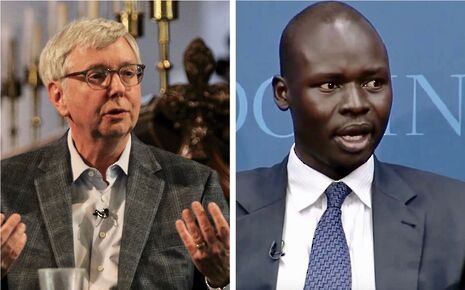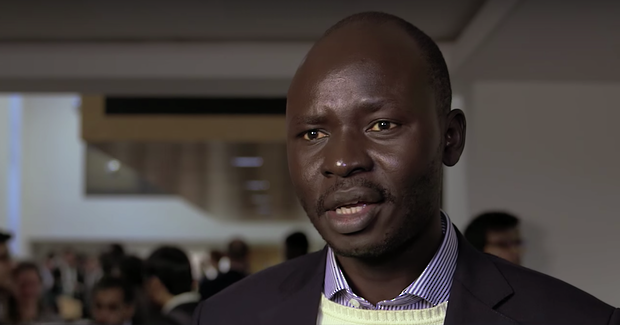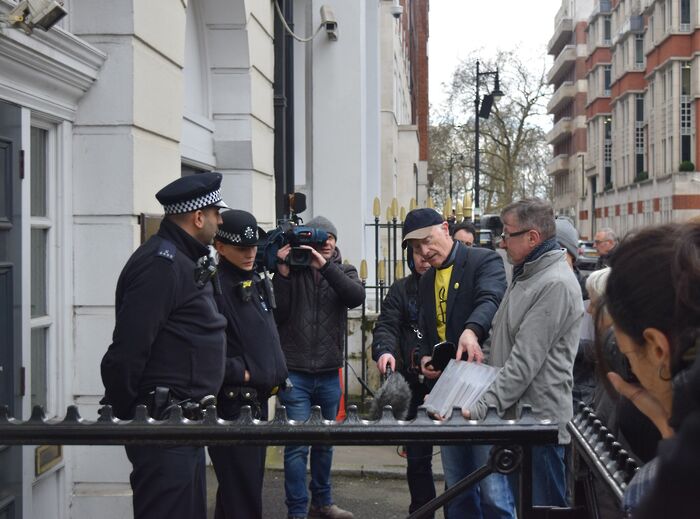Vice-chancellor calls on South Sudan to release Cambridge PhD student from political detention
Peter Biar Ajak has been held in detention for over 40 days, and has yet to be informed of the reason for his arrest

More than four weeks after Cambridge PhD student and activist Peter Biar Ajak was arrested by South Sudanese security officials, Vice-chancellor Stephen Toope has sent a letter to the country’s president, labelling the detention as unconstitutional.
The letter, sent on Tuesday 4th September to President Salva Kiir Mayardit through the country’s permanent mission to the United Nations, criticised South Sudan’s actions as being in violation of its own constitutional provisions for due process and freedom of expression.
In the letter, Toope wrote that “the University is deeply concerned about Peter’s welfare, his access to legal representation and the violation of his rights in accordance with the Constitution of South Sudan”.
Toope has further urged the government to “either release Peter Biar Ajak, or to bring charges against him in a timely manner in accordance with the rule of law and to grant him access to a lawyer”, adding to calls from human rights groups and foreign embassies in South Sudan.
The detention of Peter Biar Ajak – a prominent activist and the first South Sudanese citizen to attend Cambridge – was met with swift international outcry following his arbitrary arrest on 28th July by the South Sudanese National Security Service (NSS).
Ajak is currently being held at the NSS headquarters in Juba, the country’s capital, and has not yet been informed of the reason for his arrest.
The hashtag #FreePeterBiar was circulated on Twitter by academics and activists after Ajak’s arrest in July, and an open letter from “the undersigned colleagues and students of the University of Cambridge and the wider academic community” calling for his immediate release has gained almost 500 signatures.
A second petition on Change.org, put together by Ajak’s family, has received more than 77,000 signatures. In a statement last month, two US Democratic senators and members of the Senate Foreign Relations Committee, Cory Booker and Chris Coons, called on the South Sudanese government to release Ajak, along with other political prisoners.
Ajak, a member of Cambridge’s Department of Politics and International Studies (POLIS) and a Cambridge Trust Scholar, was outspoken in his criticism of the South Sudanese government’s peace process. Two weeks before his arrest, on the morning programme of the popular broadcasting channel NTV Kenya, Ajak said that “since 2005, the leaders in South Sudan… have been getting everything wrong”, and called for a ‘generational exit’ of the country’s aging leaders.
On Tuesday, Nyathon Hoth Mai, Ajak’s wife and a lecturer at the University of Juba, told BBC Africa Today that sentiments among South Sudanese government officials she has spoken with have been that given the country’s “volatile environment”, people “should not be speaking about the government or about the peace process, we should be accepting it.”
The Change.org petition calling for Ajak’s release remarked that “Peter’s arrest comes amid a worrying trend in arbitrary detentions due to a crackdown on freedom of expression by the South Sudanese government”. According to international human rights advocacy organisation Human Rights Watch, the government of South Sudan has “become increasingly intolerant and repressive”, where they have been arbitrarily detaining critics for extended periods of time.
POLIS has also published several statements condemning Ajak’s detention by South Sudanese authorities, and said in early August that Cambridge’s academic community was, through the embassy in London, pressing the government to “adhere to due process”.
The University of Cambridge has also made a formal request to the UN Working Group on Arbitrary Detention to intervene in Ajak’s case “as a matter of urgency”.
 Comment / Why shouldn’t we share our libraries with A-level students?25 June 2025
Comment / Why shouldn’t we share our libraries with A-level students?25 June 2025 News / Lord Mandelson visits University30 June 2025
News / Lord Mandelson visits University30 June 2025 Features / 3am in Cambridge25 June 2025
Features / 3am in Cambridge25 June 2025 Theatre / Twelfth Night almost achieves greatness26 June 2025
Theatre / Twelfth Night almost achieves greatness26 June 2025 Features / What it’s like to be an underage student at Cambridge29 June 2025
Features / What it’s like to be an underage student at Cambridge29 June 2025







